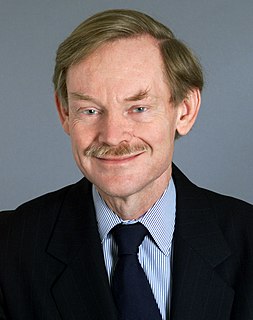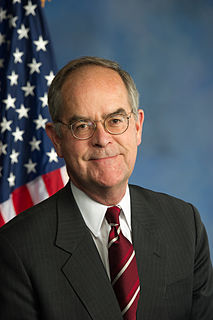A Quote by Eustace Mullins
The first task of the Federal Reserve system would be to finance the World War. The European nations were already bankrupt, because they had maintained large standing armies for almost fifty years, a situation created by their own central banks, and therefore they could not finance a war. A central bank always imposes a tremendous burden on the nation for "rearmament" and "defense", in order to create inextinguishable debt, simultaneously creating a military dictatorship and enslaving the people to pay the "interest" on the debt which the bankers have artificially created.
Quote Topics
Almost
Always
Armies
Bank
Bankers
Bankrupt
Banks
Because
Burden
Central
Central Bank
Central Banks
Could
Create
Created
Creating
Debt
Defense
Dictatorship
European
Federal
Federal Reserve
Fifty
Finance
First
Had
Interest
Large
Maintained
Military
Nation
Nations
Order
Own
Pay
People
Reserve
Simultaneously
Situation
Standing
System
Task
Therefore
Tremendous
War
Were
Which
World
World War
Would
Would Be
Years
Related Quotes
When you own gold you're fighting every central bank in the world. That's because gold is a currency that competes with government currencies and has a powerful influence on interest rates and the price of government bonds. And that's why central banks long have tried to suppress the price of gold. Gold is the ticket out of the central banking system, the escape from coercive central bank and government power.
In 1977, when I started my first job at the Federal Reserve Board as a staff economist in the Division of International Finance, it was an article of faith in central banking that secrecy about monetary policy decisions was the best policy: Central banks, as a rule, did not discuss these decisions, let alone their future policy intentions.
So: if the chronic inflation undergone by Americans, and in almost every other country, is caused by the continuing creation of new money, and if in each country its governmental "Central Bank" (in the United States, the Federal Reserve) is the sole monopoly source and creator of all money, who then is responsible for the blight of inflation? Who except the very institution that is solely empowered to create money, that is, the Fed (and the Bank of England, and the Bank of Italy, and other central banks) itself?
The States is run by the Federal Reserve, an institution that answers only to itself and to a few large banks. It's modelled on the Bank of England. Ben Franklin said that one of the main reasons America revolted was to get away from the Bank of England, the mother of all central banks - the most pernicious and insidious of all.
Finance ministers and central bank governors have the seats at the table, not labor unions or labor ministers. Finance ministers and central bank governors are linked to financial communities in their countries, so they push policies that reflect the viewpoints and interests of the financial community and barely hear the voices of those who are the first victims of dictated policies.
People tend to think that paying a debt is like going out and buying a car, buying more food or buying more clothes. But it really isn't. When you pay a debt to the bank, the banks use this money to lend out to somebody else or to yourself. The interest charges to carry this debt go up and up as debt grows.
You know policy is driven purely in self interest. The Federal Reserve Bank and the commercial banks and the Wall Street banks are not acting in the interests of the population at large, they're acting purely in their own self-interest, which is a shame because they're actions dictate the reality for 300 million Americans. But they don't see it that way, they see it only as a way to preserve their own self-interest.
This debt crisis coming to our country. The wall and tidal wave of debt that is befalling our nation. Medicare and Social Security go bankrupt within ten years, we have a debt that is looming so high that in the last year of President Obama's budget just the interest payments on our debt is $916 billion dollars.




































